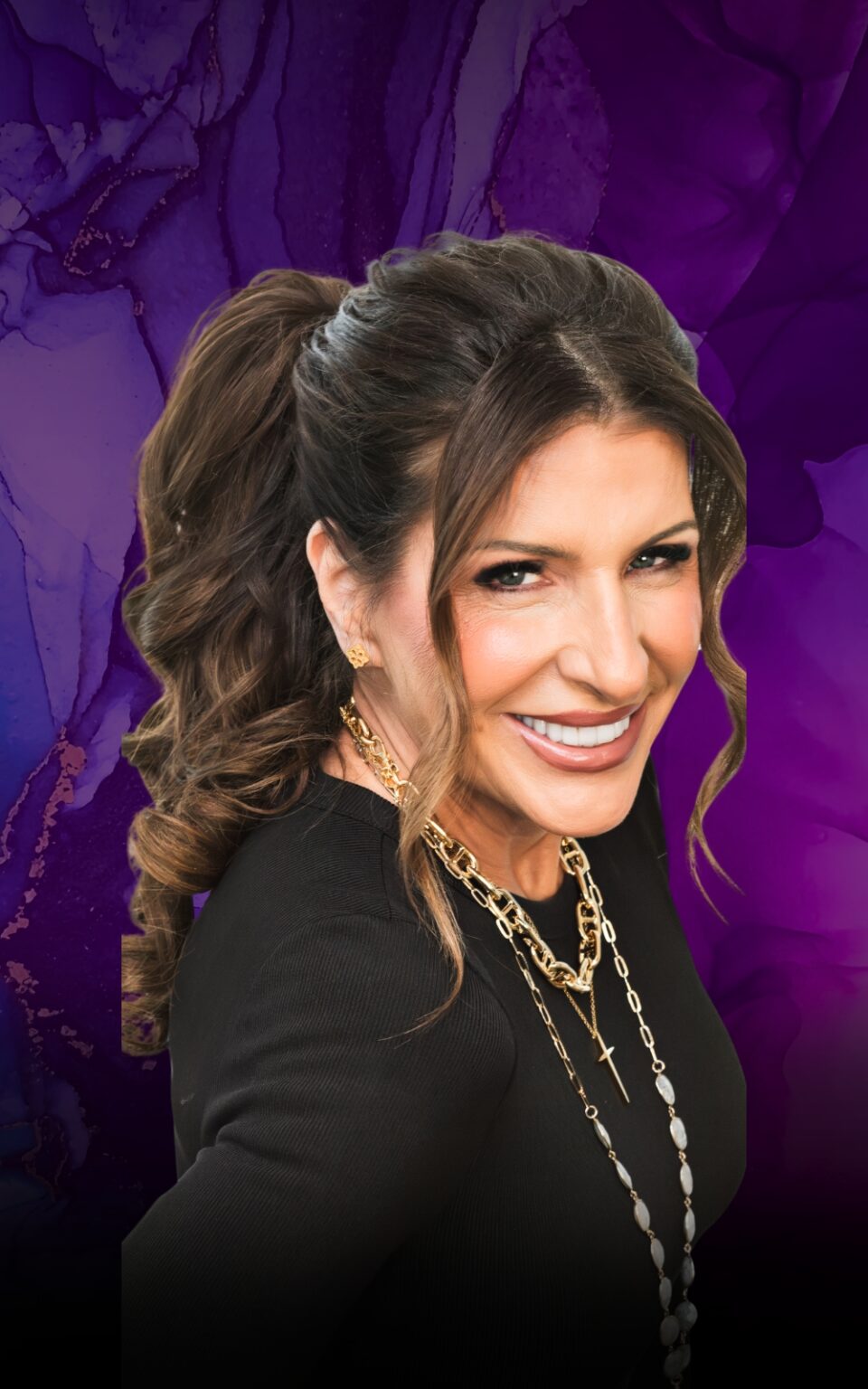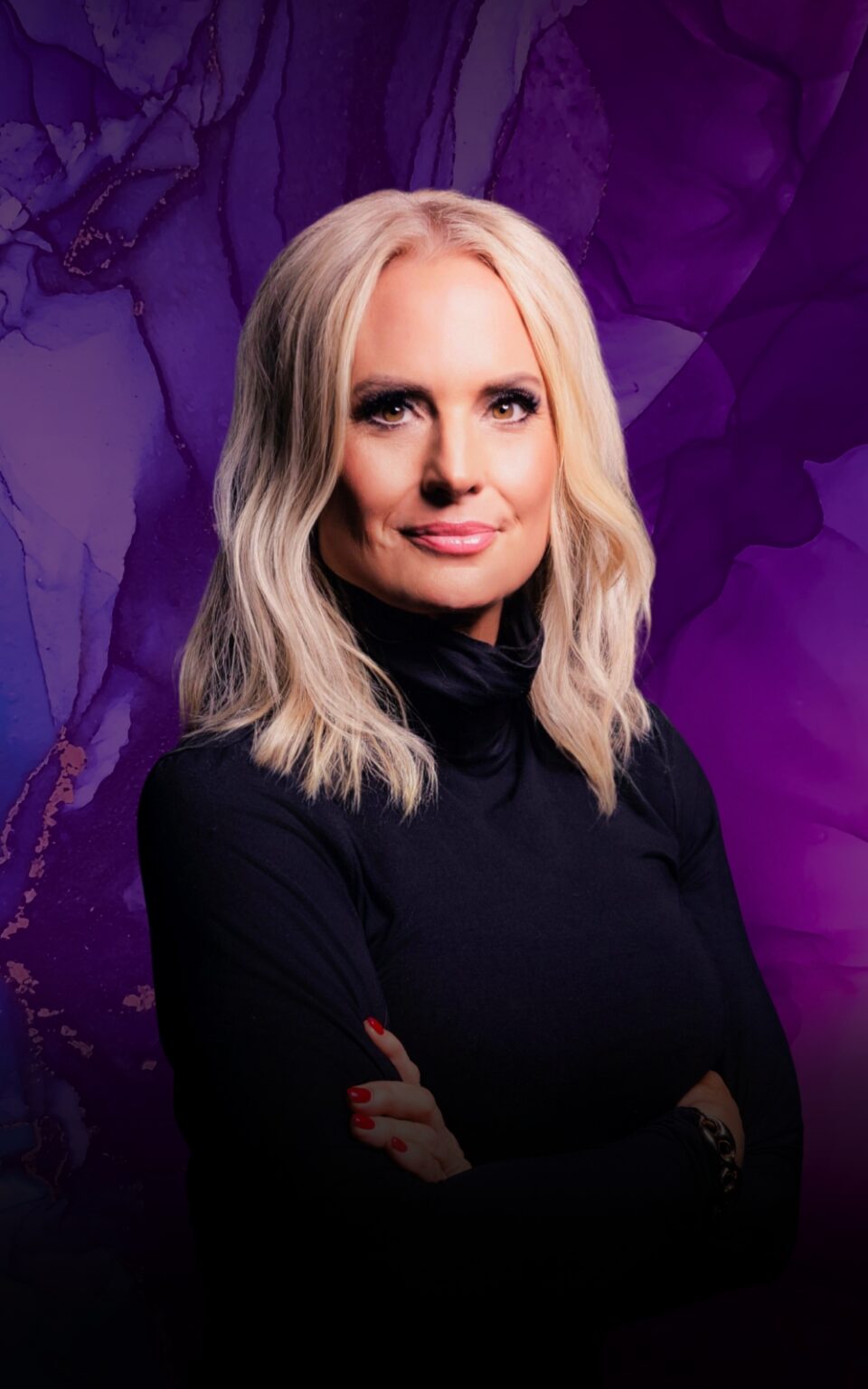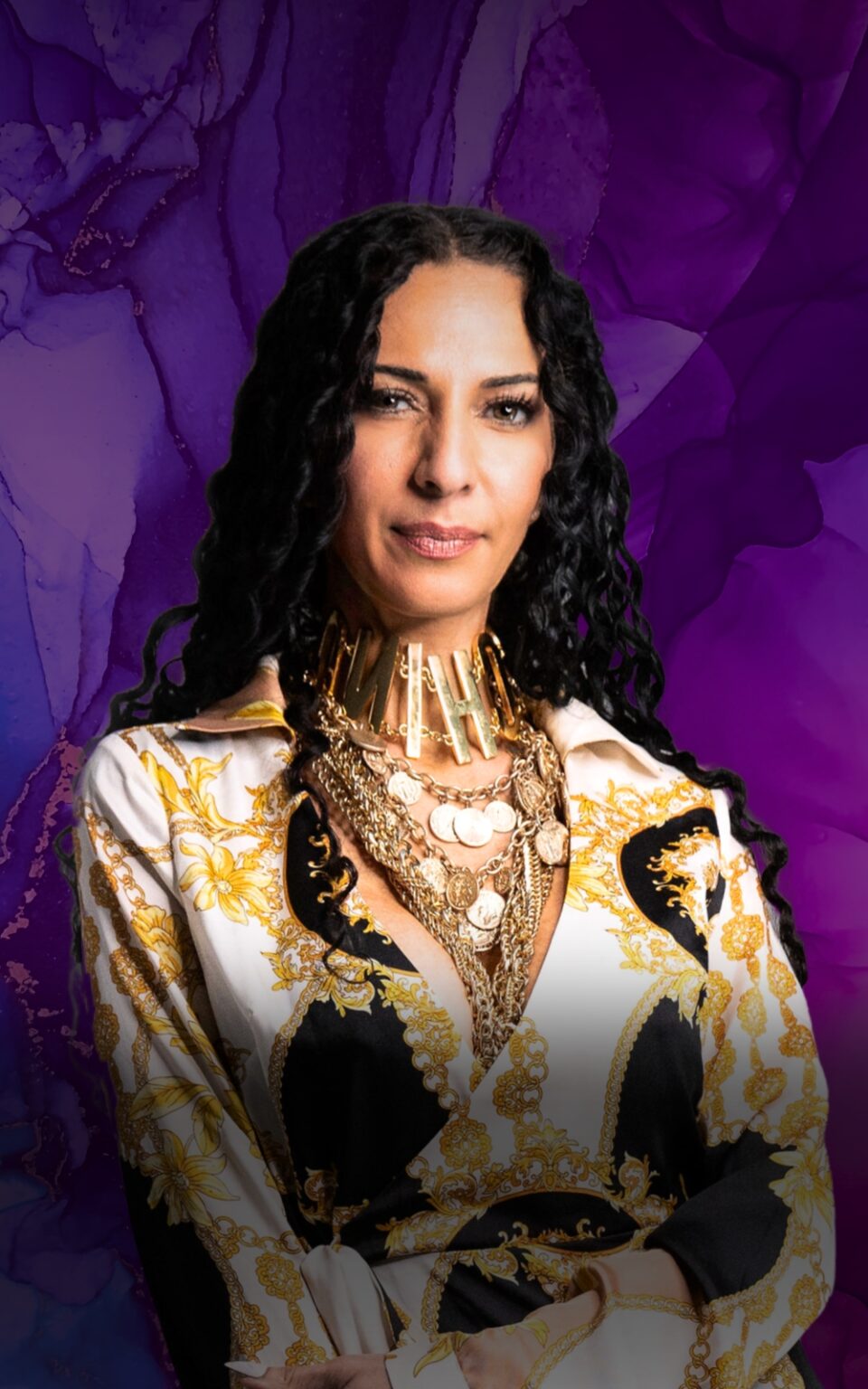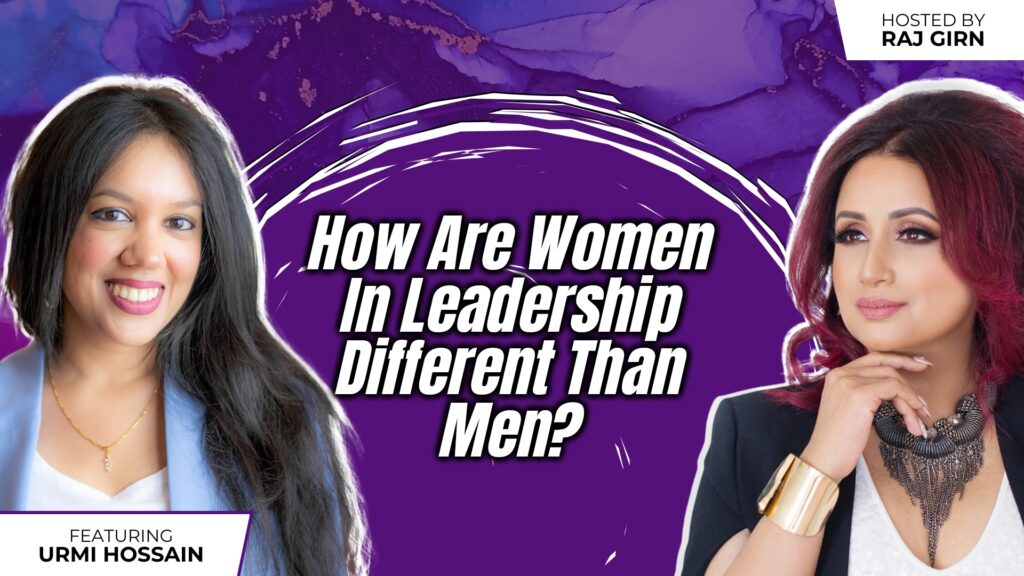
Raj Girn: Hi everyone! Welcome to another exciting episode of the ‘Transform Your Confidence’ podcast, a place where we bring you into our inner circle of recommended leaders, experts, and thought leaders to garner their insights of knowledge and techniques that are working today with the goal of levelling up your repertoire of expertise so that you’re always set up to win.
In today’s show, we will be focusing on Leadership & Advocacy with the theme of How Are Women In Leadership Different Than Men?
TO WATCH:
TO LISTEN:
TO READ, SCROLL DOWN:
Raj Girn: I’d like to begin by first of all, inviting you to subscribe to our YouTube channel at The Open Chest Confidence Academy to view all video versions of the show and also search Transform Your Confidence wherever you receive your audio podcasts, so you never miss an episode, when we launch them every 2nd and 4th Thursday of the month. Please remember that and hit the notification button just in case you don’t remember.
In today’s show, we will be focusing on Leadership & Advocacy with the theme of How Are Women In Leadership Different Than Men? Are they different? Well, we’re going to discuss that today!
My guest today is Urmi Hossain, a published author and speaker who is passionate about women’s empowerment and as such, is the social media lead for the Women in Leadership Organization, Victoria B.C. Chapter, and the campaign manager at Femme Influence. She is a big proponent of learning and self-development and has been a member of the Toastmasters Club since 2019, serving as both the VP of Education and its President.
Please welcome to the show – Urmi Hossain. Sweetheart, what a pleasure to have you on. I cannot wait to have this conversation about women in leadership with you today.
Urmi Hossain: Thank you. Thank you for having me. I’m very excited too.
Wonderful, so let’s just dive right in, Urmi. Let’s begin by sharing a bit about your background and what brought you into the women leadership space.
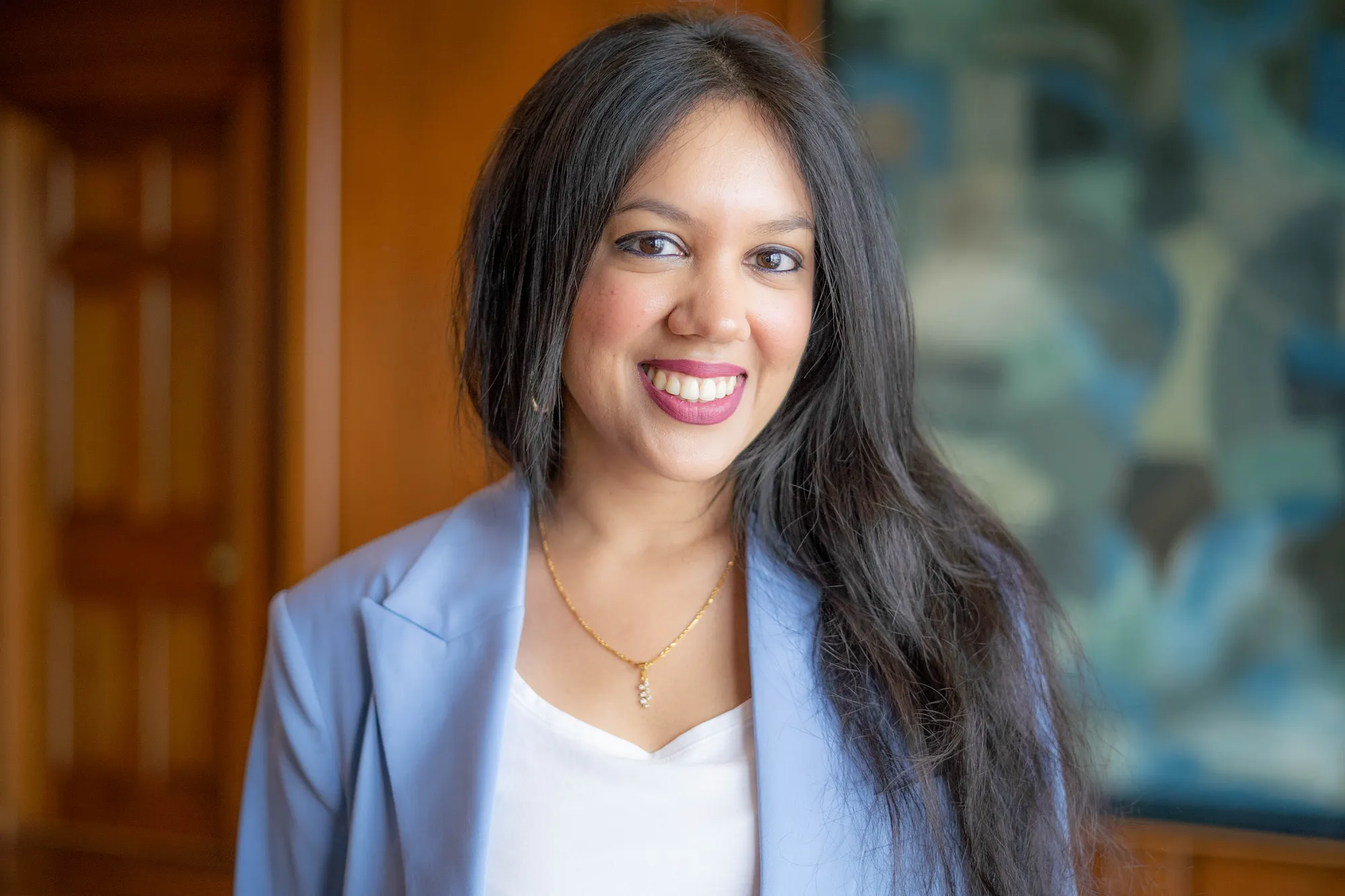
To tell you a little bit about myself, I am a woman who wears many hats. I’m a self-published author, speaker, mentor, blogger, YouTuber. I also work full-time in the financial sector. And the reason why I am doing the things that I’m doing right now, it’s because it all comes from my cultural background, which is South Asian. So I often tell everyone that I am Italian by birth and Bengali by blood.
I saw around me how women were treated and I also lacked a point of reference when I was growing up. And so I decided to really change the narrative and take on more leadership roles and one of the things I started to do a couple of years ago was mentoring, which is why I do a lot of things when it comes to mentoring, leadership, etc. I am part of the Women in Leadership Organization as a social media lead and my plan is really to change and make the world more equal and have more women in leadership roles.
Urmi, you’ve written a book that talks a little bit about some of these challenges. Can you share a little about that because I’d love for people to know why you wrote the book and what it’s about.
Yes, my book is called Discovering Your Identity: A Rebirth From Interracial Struggle. And I self-published this book in 2022. And the reason why I wrote this book was because I wanted to bring awareness. The book is basically about myself, and I talk about my life as a two culture kid. So I talk about what it was for me to grow up in two cultures, which are basically the Bengali culture and the Italian culture. And I make a comparison and contrast of the two cultures. And I talk about it from the perspective of a South Asian woman.
Writing this book was sort of like walking down my memory lane, relieving everything that I have already experienced. And it was a beautiful process because it was sort of like journaling and I was able to relive all those past experiences, so it was just going back to my childhood and my teenage hood.
What a great way of creating catharsis and dealing with some of the traumas that we go through in life by writing a book and then having the opportunity to share it with other people who may perhaps be going through similar stories that you’ve experienced.
I love that you chose to do it that way. I want to garner your expertise through your experience with the organizations that you work with, that you worked with, your own personal space in the corporate sector as well. I want to start by asking you, what is leadership to you?
When I think about leadership, I simply think about serving others and helping others. And I often think of it as being like a point of reference and leading by example for other people. For me, leadership is really about motivating, inspiring, and encouraging others, especially women. And when I think of leadership, I would say I had this misconception. I used to think leadership is all about titles, but I think leadership is about actions and really influencing other people.
When I think of leadership, I would say I had this misconception. I used to think leadership is all about titles, but I think leadership is about actions and really influencing other people.
~ Urmi Hossain
My whole idea about leadership really changed after working for so many years in the corporate job. And at the same time, it has also changed as soon as I started to volunteer and be part of these other organizations where people, you know, they don’t get paid to do these things, but they’re willing to help others. And for me, that’s what leadership is all about.
I love that. So leadership is about giving back and helping people step into their power. That’s what I’m hearing you say.
Yes, yes, and I think every one of us has some leadership qualities. I think some people are just naturally good leaders, some others it’s just about untapping that trait or that aspect about yourself, but it’s about intentionally working towards those leadership skills.
So let’s say you’ve basically answered, but I’m going to ask and reframe it anyway, because I feel that there’s a lot more we can garner from this. Can leadership be taught in your experience?
I think so too. I think it can be taught. I think that’s something that you can definitely learn in many ways. I think it’s also something that some people have naturally but if it’s something you want to learn, I think it’s all about willingness, intuition, actually intention more than intuition, and also by observing other people.
There are so many ways they can learn about leadership. Sometimes you have no choice but to lead the team. Some other times maybe you are put into a position where let’s say you have to be a mentor – those are leadership – those require leadership skills and some other times you can also take courses like women leadership for instance.
We provide leadership development courses to the women in the community, who want to learn more about leadership and what it means and so I think it goes both ways. Some people think they’re pretty good at being natural leaders, and for others, it’s just about, you know, tweaking a little bit those skills that they already have.
So why do you feel garnering leadership skills is important?
It’s important because being a good leader drives change. And why I say that, it’s because I think if we go back in the past, some of the biggest leaders have created change, positive change. Like I always think about Gandhi, like that’s. For me, that’s one important person. And I think of him and the things that he has done. And that was because he was a leader, he took initiative.
When I think about, let’s say, Martin Luther King, the same thing, I think he was a great leader. But even in the current time, we also have great leaders. And I very much look up to female leaders. I like Meghan Markle a lot, and I think a lot of celebrities that work in Bollywood – well Bollywood and Hollywood industry, are also great leaders because not only they have their job which is, ‘okay I’m an actor,’ but they do also other things as well to give back which is which goes back to my definition of leadership. They do a lot of humanitarian work and so this is why leadership is important because I think if you are a true and natural leader you are willing to step up, get out of your comfort zone and drive change.
Absolutely, and regardless of whether it is for humanitarian reasons or if it’s for commercial reasons, corporate reasons, political reasons, the end goal is the same. You are looking to bring people together in a commonality of some sort and inspire them to step up to whatever that is you’re talking to them about what your value systems are and garnering people to take action. So, the most inspiring leaders have the capacity to do that across all ages, right?
That’s right. That’s right. Totally.
So let me ask you this, Urmi. In your experience, how have you seen the ideology of leadership being different for women than it is for men, if at all?
To see a man as a leader, he is seen differently or he’s perceived differently than a woman as a leader. And unfortunately for instance I have seen in a lot of situations where women, let’s say maybe they are being firm and assertive and sometimes are criticized for being that, but we don’t make those kinds of comments if it’s a man.
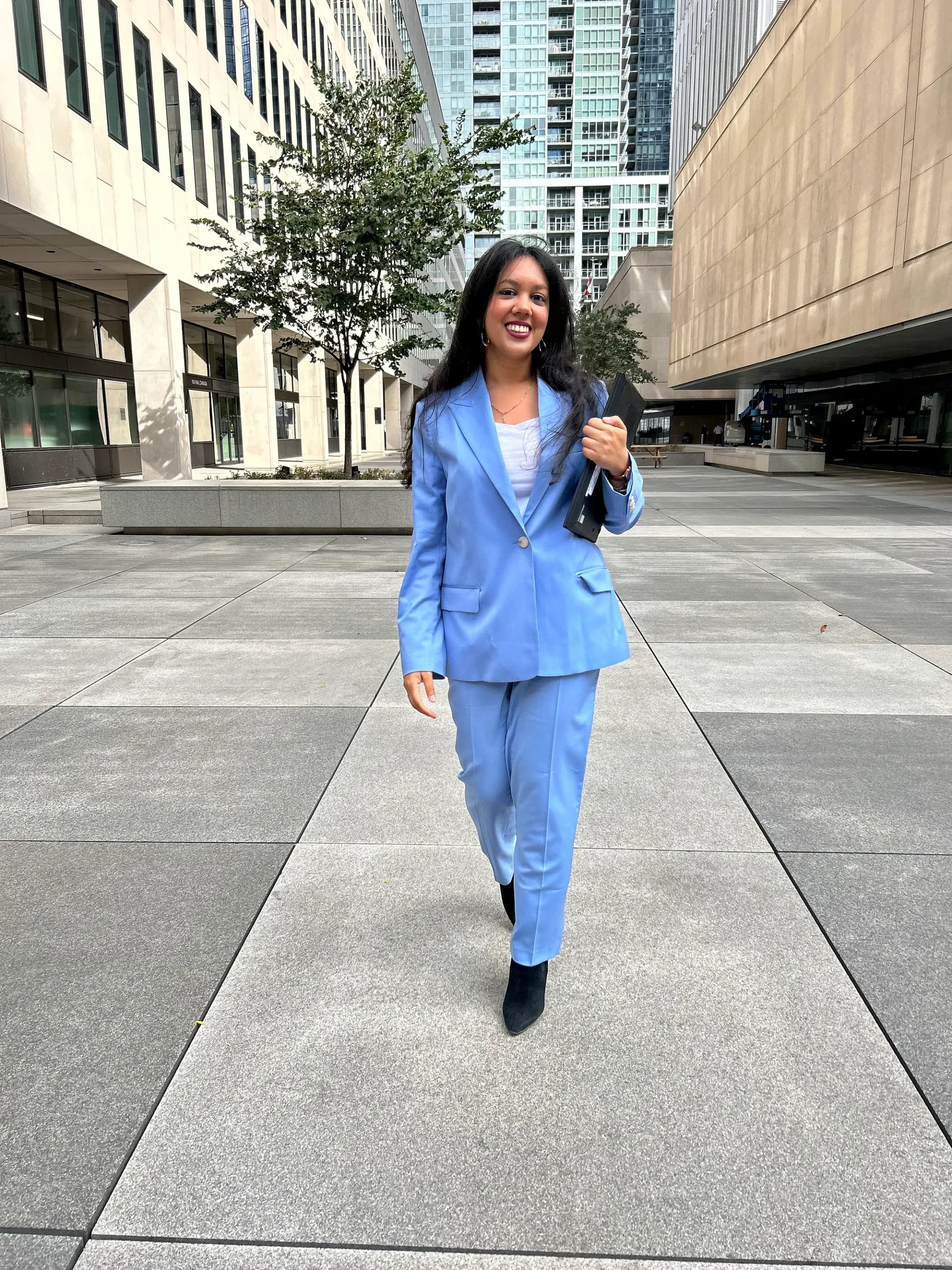
And in other aspects, I also saw situations where, you know, a woman as a leader was not taken seriously. And this is where I feel like a lot of the times we have issues with imposter syndrome because we feel like we’re not good enough for those positions. And I think most of the time those episodes really bring us to take actions, or not more as actions but like as a consequence, we just don’t feel like taking those leadership positions because we don’t believe in ourselves.
And there were other situations where I felt like women had to always prove themselves more than their male counterparts, just because they were in those leadership positions. So I see a lot of differences, and unfortunately, I feel like there’s still a lot of inequality there.
Lot of work still needs to be done still in the infrastructures that we work in, because at the end of the day, these infrastructures were made back in the industrial revolution times when men went to work, women stayed home, it was this nuclear family environment that was created.
Prior to that, history was where people lived in extended family environments, so it was a construct. But as soon as the construct of the nuclear family came about you know, there were very defined roles that were gender specific. And all of the work organizations and institutions were created for men by men.
So, and you know and I always look at that or me and I think to myself, well, men aren’t really to blame for creating these organizations without considering women, because at that time women weren’t a part of the consideration. Now that we are living in a different world where women are a part of that consideration, I feel that it’s a two-fold requirement from all of us.
Like women have to step up and say, no, this is something that I deserve, and I would like to do it this way, not the way that men have been doing it, but factoring in the sensibilities of being a woman, right? And men have to make room for women to be able to come in and have a leadership style that perhaps isn’t the same as theirs, but the more types of leadership that we have at our disposal, the more opportunities we have to be flexible and inclusive with the different people that are in the workforce, the consumers, because they’re not all men, right?
Women have to step up and say, 'No, this is something that I deserve, and I would like to do it this way,' not the way that men have been doing it, but factoring in the sensibilities of being a woman.
~ Raj Girn
They are made up of men, women, and multiple other cultures. Socioeconomic backgrounds, political sensibilities, and we need a more flexible, diverse leadership skill set in order to be able to combat all of that. Your comments on that?
I definitely agree with everything that you have just said. Yes, we cannot blame men for how the system is, but I also think that, like you said, yes, we have to make room and I also think that men are also part of the solutions because I think it’s a work that has to be done by two parties, right?
As women, I feel like we often give up because we don’t see anything coming out of it. But I think that if we stick to what we advocate for and that if we work as a team, like doing a collaboration with our male counterparts, I think it’s something that we can definitely achieve. But it’s also about men wanting to listen to us and willing to make those changes as well. Because unfortunately, I think a lot of industries are still heavily male-dominated and I think the change, it’s going to take a while for this to completely change and have the equilibrium that we’re looking for.
So do you feel that the change is more imminent perhaps when you look at Gen Z, when you look at how gender roles aren’t as defined, when you look how it’s not as important for that generation to define themselves by gender but more so by individual identity. Do you think that perhaps when we roll into that generation being in positions of leadership. That the change is going to be more imminent? What are your thoughts there?
I can definitely see a change when it comes to that. I think that if you talk about generations, I can see that for us, it’s more like gender-based, gender role and stuff like that. And like you said, with Gen Z, it is less often important. It’s more about showing up for your individual self. And I think maybe for that case, I want to say it might be a bit easier because it’s really just… being your authentic self and leading based on your style. So maybe yes, but it’s also something that we have to watch and see.

Actually, as you were talking there, I thought to myself that with it comes the positive of there being less definition between genders with that particular new leader that’s going to step in next. But then with that comes the opposite challenge of there being blurred lines of definition where identity is concerned. How will leadership address that? I mean, we have yet to see, because we haven’t gotten there yet, but I do foresee that being an issue. Anything you want to share there.
I agree with you because I think we were so used to having definitions and labels that I think walking away from those things is always a bit challenging. It makes it a bit more ambiguous, because we don’t like, how do you define it? How can we define something when we’re not sure about the definition. I think that could be a challenge, but I think it’s always about being open-minded when it comes to that and willing to see how things unfold and hopefully for the better.
Absolutely, and at the end of the day, when you’re looking at people in leadership positions, versus the masses, the goal is effective communication regardless of what that identification may be. There needs to be a very solid, positive, relevant bridge that is between the leader who is taking the charge and the community. That is needed in order for us to be able to push forward, right?
For change to happen in the direction that it needs to happen. I’m excited about what the future is going to hold about where society is going. And then when you add in other dimensions to this, other layers, like how rapidly technology is changing, how we do everything in life, how is that going to impact positions of leadership, like any thoughts.
Actually, I do want to go back to everything that you have mentioned so far. I think, like you said, leadership is really about communication and leading with empathy, being charismatic, being able to influence and inspire regardless of the person that you are. However, the problem there is that we live in a society where, like I mentioned, you have labels and definitions and there is also the issue of biases which comes in.
Even seeing a woman as a leader, there are biases right there, there will be biases you know and it’s hard to unlearn that because it’s already in us, we all have biases, even though we say, ‘Oh no, I don’t have any biases,’ but we do have biases when it comes to gender, when it comes to people of colour, we already think about, we already have some ideas in our minds, so it’s hard to change that. So, there is also that extra layer of complexity when it comes to leadership. Yes, we want to make it easier, it’s all about skills and the talent that you have as a leader. But those biases will always be there. Someone will always have an opinion about how you lead.
At the end of the day, when you're looking at people in leadership positions, versus the masses, the goal is effective communication regardless of what that identification may be. There needs to be a very solid, positive, relevant bridge that is between the leader who is taking the charge and the community.
~ Raj Girn
Absolutely, and I think that just comes back to the fact that you need to be very clear on what your value system is as a leader. You need to be very clear, on your negotiables and your non-negotiables. And you need to be very clear where you are going, what is the purpose of your leadership.
And I feel that when I tap into that myself, I find that I see between my feminine traits and my masculine traits because different traits are required for different leadership intentions, right? We spend too much time thinking about gender-based leadership rather than looking at attributes from masculine and feminine traits when combined can create the perfect cocktail for the situation at hand. What are your thoughts there?
I agree with that. I actually had a very interesting conversation with someone who was all about leadership and she was always talking about this concept of feminine leadership. And she was explaining to me that it’s not about, you know, being a man or a woman, it’s just about the way you lead, you know? Like you said, you need a little bit of both, you know because you need the traits from both sides. And I agree with that because I think as a woman, we lead the feminine way of leading. It’s with, I would say, empathy. It’s leading by empathy, whereas from the other side, it’s being assertive and being firm. So you need a little bit of both, because depending on the situation, you have to use either one of those traits. And I agree with you. I think it’s more about the way we lead the style rather than the gender. But how do we, going back, how do we unlearn that, you know? It’s not something that you are taught at school, it’s not that you’re taught even when you start working. If you take courses, you learn about it. If you read books, you learn about it, but other than that, I think not many people are unaware of it.
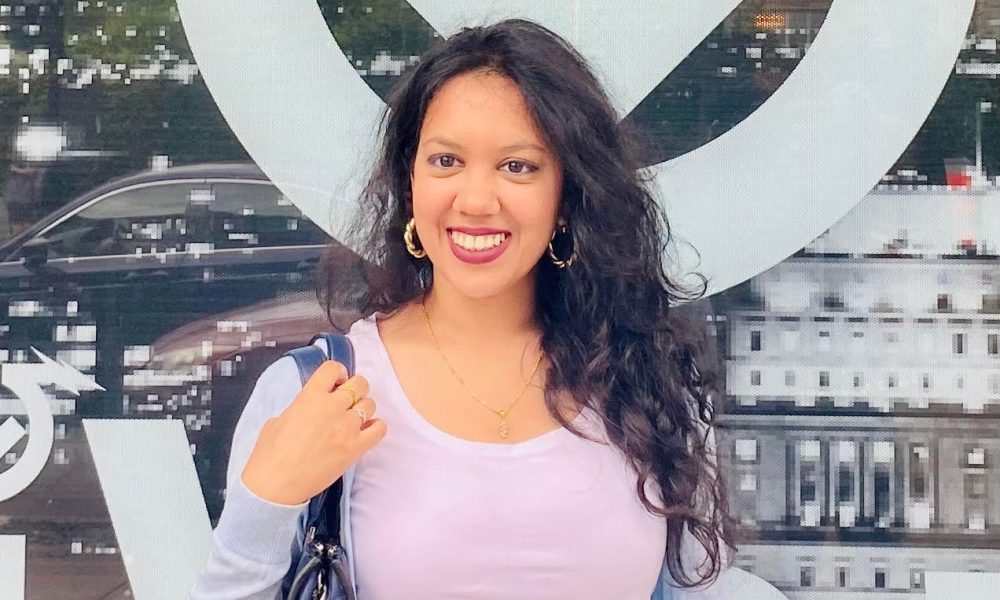
I feel that people need to be more conscious of their value system, what they believe in, what they stand for, and to have learning in effective communication. I feel that really is the key, because without that, how are you leading? Yeah, right?
How do you lead without knowing how to communicate with people and communication is a two-way street. It’s about what you’re hearing from people and what you’re communicating back to them. And when you make communication about it being one-sided, that’s when there’s breakages that take place in relationships.
So to me, effective communication means that you need to be an effective communicator, regardless of whether you’re male or female. And I’m curious about something. I wanted to ask you, Urmi, is there any woman in your personal or professional life that you have found firsthand, in your experience, to exemplify the perfect leader attributes – can you share if you have?
Yes, and she used to be my manager. I used to see her as my mentor, even though officially she wasn’t my mentor. She was just someone that I really looked up to. Why? Because she was a great communicator, and everything that she explained was more as a way to teach me something.
It comes back to effective communication. You’ve just described a great example of how that works with this lady that you were so, you know, mentored by. And you were mentored, even though not officially, right? You learned a lot from her, which is wonderful.
So I want you to also look across history and tell me who stands out as a figure of exemplary leadership. Give me an example that is female and why, and an example that is male and why.
As women, we lead the feminine way of leading. It's with, I would say, empathy. It's leading by empathy, whereas from the other side, it's being assertive and being firm.
~ Urmi Hossain
I really, I’m going to start with an example for a male leader. And I very much liked, and I still do, I like Barack Obama. He was such a great leader, honestly. I think that he came across very sincere in a lot of the things that he was doing. Even when he was giving speeches, like he would come and speak and you could feel he knew what he was doing. And I really, really liked him when he, of course, led the country.
And the second one that I admire so much is Meghan Markle. And it’s because I see myself in a lot of the things that she does. I watched one of her speeches at the United Nations, where she speaks about women’s empowerment. And I felt that she was very genuine and spontaneous and also sincere. And I think that goes with my value of coming across as sincere and my most authentic self, which is why I probably chose those two people.
And it’s because she spoke, I felt she spoke really from her heart about wanting to help the community of women. And there was a phrase that she says, which is, ‘and let’s give a voice to the voiceless.’ And I could resonate with that. I understood what she was trying to say. And right from that speech, I was like, okay, I also have to do the things that she’s doing, giving back to the community, helping out other women. So I feel inspired and I think, this is why I do a lot of these things, because of these two people who really inspired me, who I saw as true leaders, but also we have values that we share, which is why I chose them.
That makes total sense. So, Urmi, as a woman who focuses on female empowerment and leadership, you know the importance of emotional IQ and how it is crucial for optimal leadership, regardless of your style of leadership. Can you share your insights here?
Yes, I think it’s super important to have emotional intelligence. I think it’s important because at the end of the day, we’re just humans. We’re not machines. We’re no robots and we need to be able to relate to other people. And we have to relate when it comes to good times, we also have to relate during periods of down times. And I think that’s an essential element when it comes to leadership style, you need to have that key element if you want to succeed because it all goes back to human connections, being human beings and being able to connect at that level. So I think it’s super, super important.
Emotional intelligence is an essential element when it comes to leadership style, you need to have that key element if you want to succeed because it all goes back to human connections, being human beings and being able to connect at that level.
~ Urmi Hossain
Absolutely. And I can see kind of the building blocks here. So, you know who you are as a value system, right? How do you communicate so that it’s effective communication where you are collaborating in an exchange of dialog with other people that uplifts and inspires, but then also gives space and grace hearing what other people have to say.
And then the emotional IQ, I feel, is kind of that ground zero cement that holds that whole relationship together, which equals, and how effective you do it, equals whether you are a great leader or not. This is kind of the formula that we’ve been talking about here. For me as we’ve been traveling through this conversation. And I want to ask you, it’s a very well-known fact that people are more fearful of public speaking.
This is another thing you do, that most, it is one of the most fearful things, right? We hear about this all the time. But as a speaker myself, I know how truly powerful it is when you are able to stand before a captive audience and speak your truth. As a member of the Toastmasters and the experienced speaker that you are yourself, can you share why speaking is advantageous for women to do more of, especially if they are in positions of leadership?
It all goes back to what we have said at the beginning, which is about making changes. And I always say that our most powerful weapon is our voice. So if you want to advocate for things, we can do it through our voice, but we have to know how to use our voice properly and effectively, which is why I think Toastmasters has been a great place to learn about public speaking. And again, it’s not just public speaking, you learn about leadership skills, you learn about active listening skills, you learn communication skills. There is like a package of skills that you learn at those masters. And I think as a woman, if we can work on our public speaking skills, we can really bring a lot of change because you use your voice, not just in your corporate job, you use it in everything.
Let’s say maybe you’re in a store and you’re trying to negotiate something. Maybe you are looking for a job and trying to negotiate on a salary. At home, maybe you are trying to come up with a plan with your husband or something. Your voice is there to help you to get to the results. So it’s important to know how to use our voice because it really can help us to make changes.
Absolutely, I agree with everything that you just said there. When you’re in a situation where you feel intimidated or nervous speaking in public, what do you do to combat that? Let’s share that with people watching, listening, and reading who are in that position.
I do a lot of visualization type of work. I try to visualize myself speaking in front of a crowd and I visualize it in a positive way. Like it’s me succeeding on whatever I have to do. That’s one thing I do. Another thing I did is write down. So I’m all about positive self-confirmation. So I am always writing down, okay, this will be great. And I keep writing it until it’s in my head. And it works.
It’s a very effective way to make sure that this is ingrained in your subconscious that like whatever you want to do, it’s want to work. And there’s this technique that I have learned, which was something that I had learned at Toastmasters. I also learned that through a workshop and I read it in a book, which is the power of power poses.
I don’t know if you’re familiar with power poses? Basically, it’s the same position Wonder Woman has. You stand still, your arms are around your hips, and you have to basically, the technique says that you have to do the power pose for two minutes to see the results, but it helps you to basically reduce your nervousness.
It works. It works, I’ve tried it a couple of times, and so those are three things that I do every time, you know, I have to speak somewhere, or let’s say I’m thinking about a speaking event and I’m feeling nervous, I try to really calm down my nerves by doing some of these techniques, and it usually helps.

You heard it right here guys, if you are one of those people who is not stepping into that next great milestone of accomplishment in your life because you’re being held back from the fact that you can’t speak in public and that could be simply standing up in a boardroom, that could be standing up and speaking at your place of work, all the way up to speaking as a keynote speaker for thousands of people, whatever it is.
That is that milestone that you’re not able to jump over because of the fear of public speaking. Try out these three techniques that Urmi has shared. I feel like I’m gonna try them out as well. I have a speaking gig coming up in another couple of days where I’m keynoting. And so I’m going to try that out as well. Let’s see if it works.
So let me ask you this. We’re coming around to closing off. For me this has been a very insightful conversation with you. Many things to think about. Today’s show theme is “How Are Women In Leadership Different Than Men?” My question to you is this, do you agree? If you do, tell me why. If you don’t, tell me why.
I definitely agree. We do have very different kinds of leadership styles. Women are more empathetic when it comes to leadership style, they are a lot more collaborative. Whereas men are direct to the point, more action-oriented and more assertive. Actually, I’m going to use the word bossy, because they can be bossy. And in that sense, we are very different. I think women are more softer when it comes to leadership style, but going back to what we have discussed so far, we need a bit of both worlds to make it work effectively. It’s not enough to have one thing only because it’s not one size fits all.
Women are more empathetic when it comes to leadership style, they are a lot more collaborative. Whereas men are direct to the point, more action-oriented and more assertive.
~ Urmi Hossain
You know, it’s really interesting you say that because I found learning to be a leader has a lot to do with commanding your presence without dimming other people’s light. And to balance my feminine and masculine traits to imbibe my natural persona so that I always show up as authentic as I possibly can, especially since leadership has a certain performative aspect to it as well.
There’s kind of that line in the sand, a very faint line in the sand between performance and authenticity. You do need the authenticity, but you also do need to be louder and larger than you normally would be. Your comment.
Yes, I totally agree with everything you have said. And it’s about building a presence without really demeaning others. And this is so fundamental. Absolutely. I think… I think a lot of the time really people think that just because you have a certain role, let’s say you’re the CEO of a company, the SVP of a company and you think that you’re entitled to treat people in a certain way.
But in doing that, you’re not building followers or people that look up to you. They just want to walk away from you because of the way you treat them. And it’s about treating everyone equally, on the same level, giving the same level of respect and not seeing someone because of their title, just seeing the person as who they are. So I do agree with what you said.
Absolutely. Well I’m glad that we’ve been agreeing all along. What a lovely, effortlessly aligned conversation we’ve had, sweetheart. So I want to ask you this. For our audience of women, especially those who lack confidence, therefore may not step into leadership roles, what would you say to them?
One thing I would tell them is to believe in themselves. I think we don’t do enough work when it comes to believing in ourselves. I think that we’re great at instilling confidence in other people, telling other people to go and pursue your dreams, live your life fully. But when it comes to us, we’re not able to be selfish enough to put ourselves first. And I think one of the issues is that we don’t believe in ourselves enough. We don’t believe in our skills, we don’t believe in our talent, we don’t believe in our capabilities.
And I think that before everyone else, you have to put yourself first and you have to believe in everything that you can do. And this goes back to some of the things that I mentioned. I think a positive self-affirmation, like writing down that you can do something, will help you to get a bit closer to getting that confidence that you need. So always believe in yourself.
Absolutely. It really fundamentally all starts there. I mean, the work around the mind shift to get there is the key to then being able to take the steps to move it forward. Without one, you can’t do the other. So I completely agree with you. Is there anything that we haven’t talked about that you would like to share with everyone or me regarding women in leadership?

Nothing in particular. I think we did have a very insightful conversation. And one message that I would have for the people listening or watching is that when it comes to women in leadership positions, I think it’s very important that you seek a mentor when you want to step into those types of roles. I think that’s always important to seek guidance and advice from people that have experienced it all.
And this could be a female mentor, a male mentor, it could be anyone, but it’s always important to look for guidance. And I’m a big advocate of mentorship. I believe in the power of mentorship, I believe the power connections. And getting some advice from someone who went through all of it, I think it would really help you to get what you want.
Absolutely. Where shall we send everyone for me to go hang out with you online? I can’t believe it, but we’ve come to the end of this episode now. And I know there’ll be people that will want to kind of glean more of your insights, of your experience around this subject matter, and I’d love to be able to send them somewhere. Where should we send them?
I have a YouTube channel called @UrmiHossain. I have my LinkedIn profile called @urmihossain if people want to see the work that we do at Women in Leadership, they can just Google Women in leadership Canada. I volunteer for the one in Victoria chapter. So basically it’s Women in a Leadership Victoria chapter, we have a website, we have an Instagram account, and they can find out about all the work that we’re doing in terms of mentorship and women in leadership development program.
Incredible. Thank you so much for coming on and sharing your insights, Urmi. So much to glean from. You definitely are a woman to follow and admire for all the right reasons. Thank you, so much, for giving us your time and your experience and your expertise.
Thank you.
Folks, if you’d like to learn more about Urmi, go hang out with her on her socials as she mentioned, go say hello to her and let her know that you found out about her right here at the Transform Your Confidence podcast.
And I will see everyone next time with another insightful episode, just like this one. Transform Your Confidence, the podcast folks, you can go hangout with us on YouTube at The Open Chest Confidence Academy. You can also go to The OpenChestConfidenceAcademy.com to sign up for our freebies, our free newsletter. Be a part of our community.
And please stay connected with us on our socials at @The Open Chest Confidence Academy and theopenchestconfidenceacademy.com website where you can find out different ways that you can work with me and our team. See you next time.





